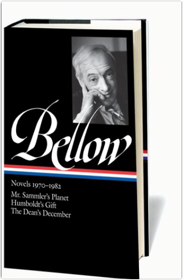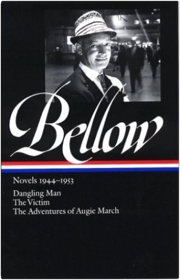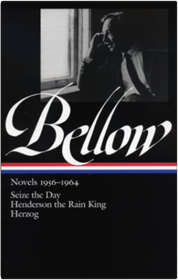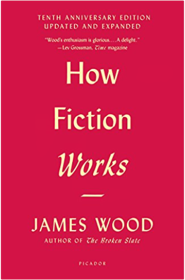Bellow: Novels 1970-1982: Mr. Sammler's Planet / Humboldt's Gift / The Dean's December  Saul Bellow: Novels 1944-1953: Dangling Man, The Victim, and The Adventures of Augie March  The comic tour-de-force The Adventures of Augie March (1953) introduced to American literature a startlingly original expressiveness-uninhibited, jazzy, infused with Yiddishisms and Depression-era voices. Ebullient irony bears Bellow's prose aloft. March comes of age in a Chicago bustling with characters as large and vital as the city itself, and his travels abroad lead him through love's byways and the disappointments of vanishing youth. Martin Amis calls it "the Great American Novel" for its "fantastic inclusiveness, its pluralism, its qualmless promiscuity. . . . Everything is in here." Bellow's sparer first two novels possess a more Flaubertian precision. Dangling Man (1944) penetrates the psychology of a jobless man's anxiousness as he awaits draft orders. The Victim (1947), an increasingly nightmarish story of one man's extraordinary claims on a casual acquaintance, explores our obligations to others and the unfathomable workings of chance. After a half century, Bellow's earliest novels remain as fresh, incisive, and entertaining as ever. Included in this edition are helpful notes and a chronology of the author's life. Saul Bellow: Novels 1956-1964: Seize the Day, Henderson the Rain King, Herzog  BROKEN ESTATE  The Fun Stuff: And Other Essays  How Fiction Works (Tenth Anniversary Edition): Updated and Expanded  How Fiction Works is a scintillating study of the magic of fiction―an analysis of its main elements and a celebration of its lasting power. Here one of the most prominent and stylish critics of our time looks into the machinery of storytelling to ask some fundamental questions: What do we mean when we say we "know" a fictional character? What constitutes a telling detail? When is a metaphor successful? Is Realism realistic? Why do some literary conventions become dated while others stay fresh? James Wood ranges widely, from Homer to Make Way for Ducklings, from the Bible to John le Carré, and his book is both a study of the techniques of fiction-making and an alternative history of the novel. Playful and profound, How Fiction Works will be enlightening to writers, readers, and anyone else interested in what happens on the page. The Irresponsible Self  The Nearest Thing to Life  Serious Noticing: Selected Essays, 1997-2019  Ever since the publication of his first essay collection, The Broken Estate, in 1999, James Wood has been widely regarded as a leading literary critic of the English-speaking world. His essays on canonical writers (Gustav Flaubert, Herman Melville), recent legends (Don DeLillo, Marilynne Robinson) and significant contemporaries (Zadie Smith, Elena Ferrante) have established a standard for informed and incisive appreciation, composed in a distinctive literary style all their own. Together, Wood’s essays, and his bestselling How Fiction Works, share an abiding preoccupation with how fiction tells its own truths, and with the vocation of the writer in a world haunted by the absence of God. In Serious Noticing, Wood collects his best essays from two decades of his career, supplementing earlier work with autobiographical reflections from his book The Nearest Thing to Life and recent essays from The New Yorker on young writers of extraordinary promise. The result is an essential guide to literature in the new millennium. Upstate: A Novel  |


Delicious Library
Collection Total:
3,640 Items
3,640 Items
Last Updated:
Nov 2, 2025
Nov 2, 2025
 Made with Delicious Library
Made with Delicious Library